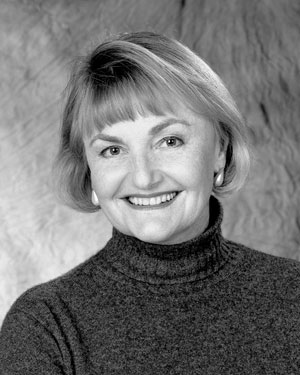Law Society of Upper Canada benchers have altered their compensation scheme in a move expected to cost its membership an extra $380,000 a year.

Convocation recently approved the plan put forward by its finance committee, including a new policy to compensate benchers for travel time, increased payable time for writing tribunal decisions, and upped per diem rates.
“We’ve had remuneration now for a number of years, and it was determined that travel time should be included for the out-of-towners,” finance committee vice chairman Bradley Wright told benchers at their June meeting.
“It’s not so bad for somebody like me from Ottawa, but if you’re coming from northern Ontario or from Manitoulin Island, for example, it takes you practically the whole day to travel, and that would now be covered.”
Benchers working on hearing and appeal panels previously were limited to one day of remuneration for decision writing. The change, estimated to cost about $40,000 a year, allows them to now claim remuneration for a “reasonable amount” of time spent writing decisions.
Bencher Beth Symes, chairwoman of the audit committee, noted that a disproportionate amount of discipline work by benchers is conducted by out-of-towners. She added that by increasing compensation for reason writing, the law society would recognize the importance of the quality of decisions. She noted that it often takes benchers up to six days to write decisions.
“We want those reasons to be good, to be explained to the member who is about to lose his or her licence why, and to have those reasons withstand scrutiny both by the appeals panel and by the courts, and they are to be published,” said Symes.
“If we look at it, the amount of remuneration which is paid, which is $500 a day for a busy practitioner, is a huge sacrifice as compared to what they can earn or we can earn in our private practice.”
Symes added that the travel-time remuneration, expected to cost about $300,000 annually, is important to benchers who commute from the far reaches of the province. She noted that for Toronto benchers, “it’s a subway token and 10 minutes to get here for a hearing or a meeting or whatever.”
Bencher Judith Potter, who is from London, suggested Convocation go further and compensate benchers for their time when they have booked days off and travelled to Toronto for a hearing panel that is subsequently postponed or cancelled.
“We can’t just go back to our offices and pick up our files and carry on,” said Potter. “We have not scheduled the other work that’s done by many of us . . . and it means we have lost a week.”
The change to bencher per diem rates will see an increase to $530 from $500 for a full day of work, and $320 from $300 for a half day. The move, which Wright said would make up for inflation since the rates were first set in November 2005, is expected to cost $40,000.
The finance committee report notes that when bencher remuneration was first introduced it aimed to “temper somewhat, but not eliminate, the financial sacrifice of being a bencher.”
Benchers must donate 26 days of work before being eligible for remuneration, a stipulation that “represents the benchers’ unpaid contribution to the profession and the public, and amounts to more than five business weeks away from the office,” states the report.
The cost of bencher remuneration to the law society for the 2007 financial year was $357,000: $159,000 in 2006, and $134,000 in 2005, according to the report. In 2007, 24 of 70 eligible benchers claimed remuneration, versus 18 of 69 in 2006, and 24 of 73 in 2005, states the report.
The report notes that many benchers don’t claim remuneration as a matter of principle, because they don’t exceed the 26-day deductible, or are forbidden from claiming due to employment contracts.
Bencher Constance Backhouse voiced her opposition to bencher remuneration.
“I appreciate this motion is designed to rationalize and improve upon our original bencher remuneration policy,” she told Convocation. “I can see the arguments in favour of the motion, however, those of you who were here when we first voted with respect to whether to bring in bencher remuneration at all will remember that it was a hotly contested matter.
“Many of us voted against bencher remuneration at the outset and, as a matter of principle, I will be voting against this because I am still against the concept of bencher remuneration.”
Criminal lawyer Bill Trudell, who dedicates most of his practice to defending members at law society tribunal hearings, says he supports “reasonable remuneration for benchers.” But he says more needs to be done to support members.
“We have to put aside some money to create whatever kind of office, whatever they call it, for the members only,” says Trudell.
In other Convocation spending news, benchers approved $150,000 in funding for the Ontario Civil Legal Needs Project, which will assess the legal needs of low- and middle-income earners. The project was created by LSUC’s access to justice committee and Pro Bono Law Ontario.

 Convocation recently approved the plan put forward by its finance committee, including a new policy to compensate benchers for travel time, increased payable time for writing tribunal decisions, and upped per diem rates.
Convocation recently approved the plan put forward by its finance committee, including a new policy to compensate benchers for travel time, increased payable time for writing tribunal decisions, and upped per diem rates.